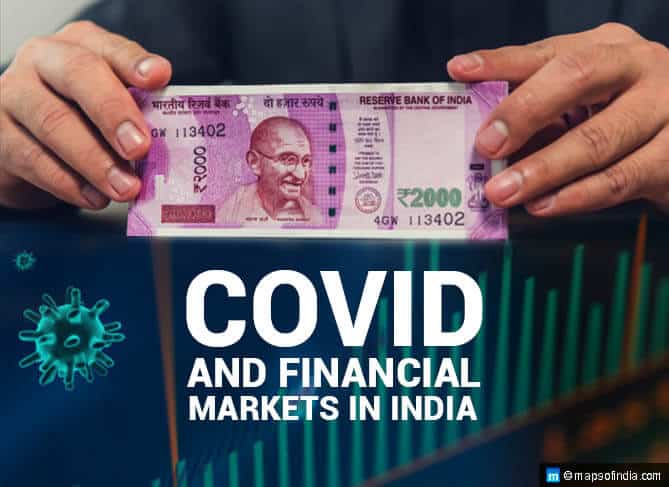
With lockdown now extended till May 3 as per PM Modi speech on April 14 at 10 am, the stock market came down the next day (Sensex down by about 500 points – 1.5%) and many losses are anticipated. Along with this development, the finance market is in the news in India, and there are many important observations to be made, primarily due to India’s ongoing fight coronavirus. Here are some of the most pertinent updates.
1. Oyo and COVID
Oyo was a big name from India with founder Ritesh Agarwal becoming the poster boy of the startup ecosystem in the financial circle. But things are changing for them as well as for its major investor Soft bank.
SoftBank Group Corp and Son
They are still reeling from the meltdown at the shared-office company WeWork. Now their flagship investment in Oyo rooms is staring at a big problem.
a) Just nine months ago, Masayoshi Son, Head Soft Bank declared Ritesh Agarwal, heading Oyo rooms as the brightest star completely backed by his SoftBank. It was mentioned that Oyo Hotels & Homes was going to have the biggest hotel chains in the world just a few years after its founding. It was supposed to be a dream run for both of them.
b) COVID has affected Oyo in a big way. They are freezing operations around the world and removing thousands of employees as they struggle to survive the coronavirus pandemic. Travel has become zero, leaving hotel rooms empty and losses rising. The problem in SoftBank is quite significant as SoftBank had booked profits on Oyo’s increased valuation (with a huge estimated increase in profits) and may now be forced to take losses on the investment. The Oyo startup was valued last year at $10 billion, one of the highest in SoftBank’s portfolio. Now with losses growing, they are bound to book the impairment losses, and valuations are supposed to go down by at least 20 to 30%.
c) The Oyo situation could prove particularly critical financially as Oyo head Mr Agarwal had taken a loan of $2 billion to buy shares in his own company as the valuation rose, and Son head of SoftBank had personally guaranteed the loans from financial institutions. Banks may ask for more guarantee if Oyo’s valuation drops, and the two men could face personal impairment losses.
d) The situation ahead is not going to be easy for Oyo. With extended lockdown in India and of course, this also means almost NIL revenue further and a further reduction in the business or capital value.
2. Banks/NBFC’s and COVID
Banks & NPA
Banks have not come out from the Yes Bank crisis, and now NPA’s are the next hit area. Banks have already extended three months moratorium in various cases, and some banks have given extended COVID credit line also (ranging from 10% to 30% of the working capital limits).
a) Banks in the country are likely to see a spike in their NPA ratio by 1.9 per cent and credit cost ratios by 130 basis point in 2020, following the economic slowdown on account of COVID-19 crisis, says a report titled “For Asia-Pacific Banks”. The report says – COVID-19 Crisis could add USD 300 Billion to credit costs. S&P Global Ratings said, it expects the non-performing assets (NPA) ratio for the Chinese banking sector to increase by about 2 per cent in 2020, and credit losses, to increase by about 100 basis points.
b) On India, the report said, “the NPA ratio in India is likely to fare similarly to China’s (1.9 per cent – 2 per cent), but the credit costs ratios could be worse, increasing by about 130 basis points. If the Coronavirus moves to stage 3 in India by which it will spread faster, further, and for longer, then the losses shall go up increasing pressure on the financial system. The report noted that an additional USD 300 billion spike in lenders’ credit costs and a USD 600 billion increase in (NPAs) will occur in 2020 due to the negative impact of Coronavirus.
HDFC & China
Very recently, news came in that China’s central bank, the People’s Bank of China (PBoC), had bought about 1 per cent stake in HDFC, India’s largest housing finance company. It started raising concerns that China was trying to take over good Indian companies. There is a lot of negativity prevailing against China as it is believed that China had first released the ‘Wuhan virus’ to kill the global economy, as a result of which stock markets are on a tailspin, and is now following up by picking up equities dirt cheap.
Fact No.1 – Now, it turns out PBoC already held 0.8 per cent or 13.8 million shares of the HDFC in March 2019. At that time, the value of the Chinese central bank’s holdings was about Rs.2,700 crore. In the past three months, HDFC’s share price has dropped from about Rs.2,500 to Rs.1,500, a 40 per cent ‘correction’ caused by the Coronavirus. PBoC took the opportunity to buy 0.2 per cent more. This investment would have cost it $70-80 million. So yes, it is not linked with Corona at all, its a timing call with them since they have good funds and HDFC is known in the market as a good bet.
Fact No. 2 – Deepak Parekh, HDFC’s chairman has clarified, PBoC has bought the stake on behalf of China’s sovereign wealth fund SAFE. Sovereign wealth funds are state-owned (Govt stake) investment funds, which take a country’s excess cash reserves and invest them in companies and funds across the world. Three known funds globally are:
- Government of Singapore,
- Abu Dhabi government’s Investment Authority and
- Norway’s government pension fund.
The interesting thing is that all these three sovereign wealth funds have larger holdings in HDFC than the People’s Bank of China. The Singapore government owns 3.3 per cent, the Abu Dhabi government owns 1.1 per cent and Norway’s central bank, Norges Bank, holds another 1.1 per cent. Along with these three government institutions, Saudi Arabia’s central bank, SAMA, has also bought a 0.7 per cent stake in HDFC.
Fact No. 3 – Perhaps China believes that the Modi government will give a big stimulus to the economy and the RBI will cut interest rates, even more, not only to revive consumption demand but also induce India’s middle class to begin repurchasing homes. There’s no indication, yet, on whether a stimulus package is coming or not. But investing in equities is a good decision, especially when their prices are lower and it’s a good investment.
3. Stock Market India and COVID-19 Global Reports
Greed & Fear newsletter warned that any extension to the ongoing lockdown would trigger another round of selloff in the domestic equity market. They have mentioned that in case India imposes another three-week lockdown, Indian markets will see a selloff. According to them, India has a marginally ‘outperform’ rating on India, which had been underperforming even before the outbreak of COVID 19. If the situation does not improve, India is going to be a sell market which means much lower index in the stock markets. The stock index stability measures each country’s stability.
a. Stock market and pharma companies – Speculations are rife about companies producing medicine to control the COVID Pandemic. The most talked-about stock are the pharma stocks. Various stocks in the news are:
i. CIPLA
ii. SUN PHARMA
iii. Dr Reddy lab
Though most of the shares are having their ups and downs, the pharma companies stock is seeing a significant upwards movement only since the next demand is going to be of the medicines to control the COVID.
Let’s hope things get better In India and things improve.
Related Links:
How to Keep Your Financial Operations Running During The Lockdown
Cipla Gets US FDA Approval for Albuterol
Is Hydroxychloroquine a Game-changer for COVID-19 Treatment?





